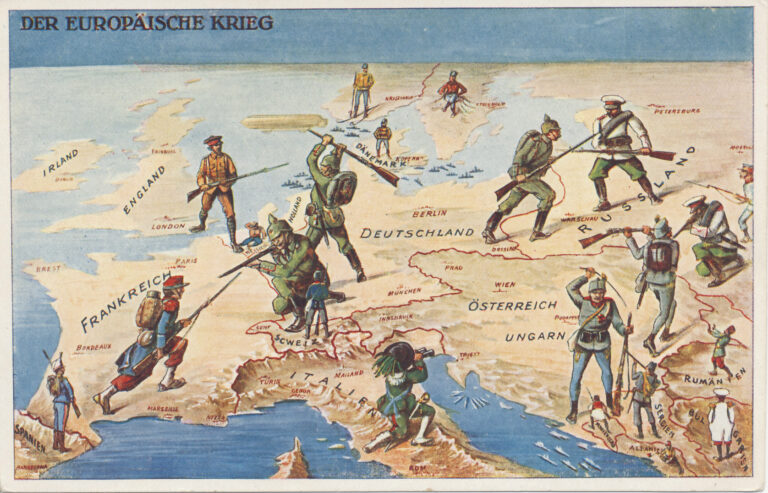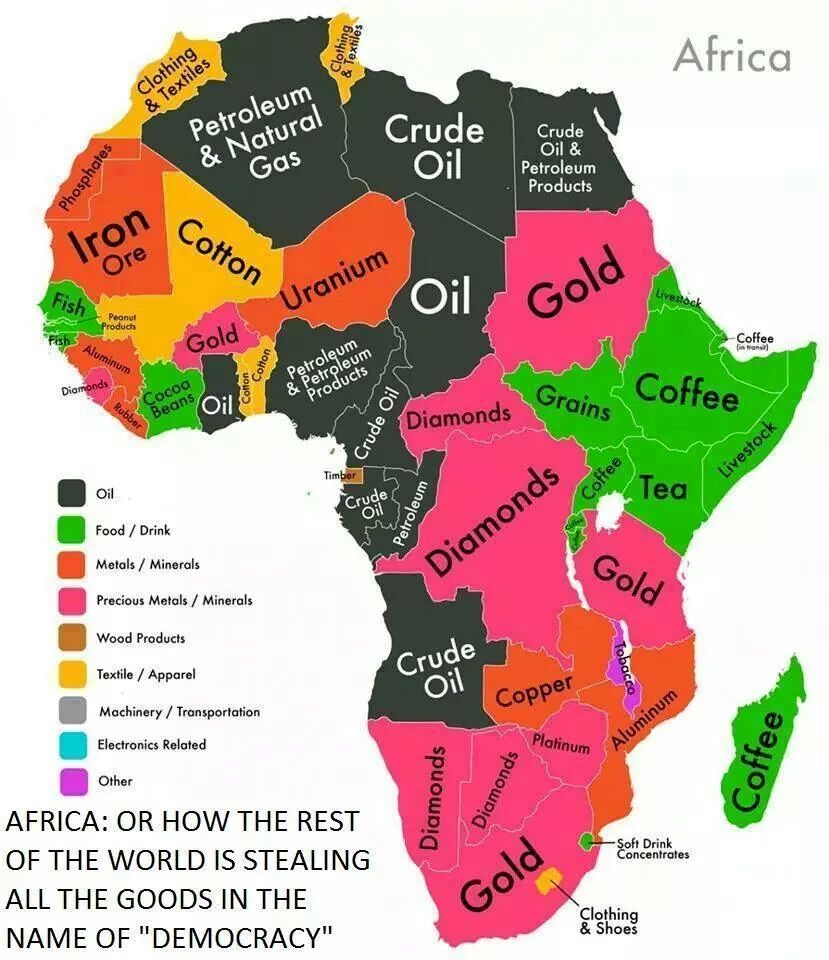Europe enjoyed unprecedented power in shaping world’s geopolitics for a long time, beginning in the early modern period up to the Second World War after which it was molded into a ‘Union’. In the recent years, the Greek crisis, terror attacks and the refugee crisis have shaken the foundations of such a Union. The Brexit has weakened it further. While economic and political commentaries have clogged the information space, I will present an alternative explanation to the Europe crisis- that of a weak moral and ethical foundation, totally lacking the Dharmic principles of governance.
The European ‘Union’ was not an idea that was simply born post-Second World War starting with the 1948 Hague Congress and the subsequent creation of European Economic Community (EEC) in 1957. European states, despite all their territorial and economic conflicts, were always tied by culture, historicity, and ideology. There are innumerable examples, both celebratory and dark. The victory of scientific temper over church-imposed religious dogmas is a highlight on the bright end, and the zeal to conquer the world through muzzling of indigenous traditions in the ‘third world’ is an example on the other. Although Europe’s colonial conquests were coated with the fiduciary principle[1], in reality, they were founded on Adharma – lack of humanistic values and benevolence.
Nothing symbolizes it better than the systematic ‘Scramble for Africa’ – leading to the ‘straight-lined’ territories (or nations) as we see today in Africa’s map.
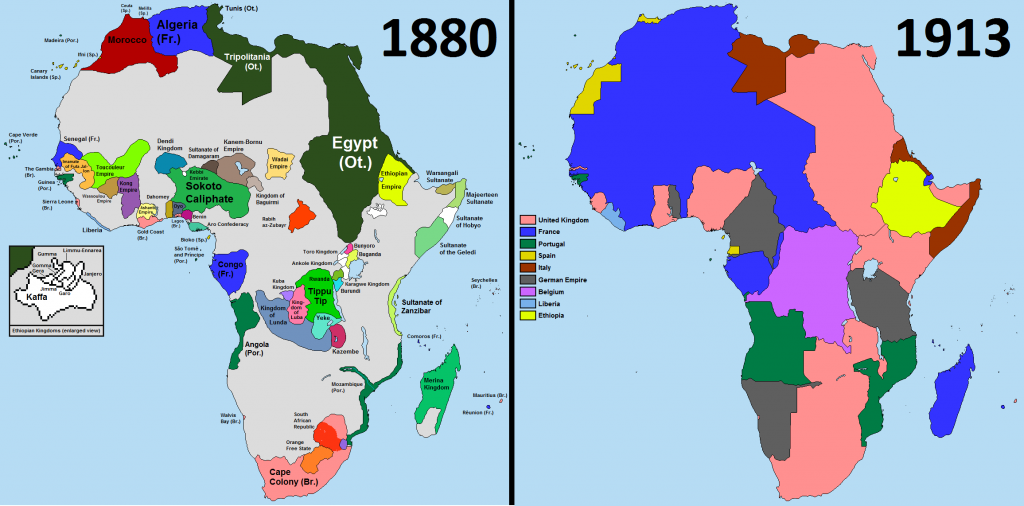
The Scramble
In 1870, only 10% of Africa was under European rule[2]. During that period, internal hostilities among European powers were at their peak, as they tried to extend their control over richer territories in the Dark Continent[3]. Of special interest was the Congo River basin over which the French and the Belgians made claims of control. However, the Portuguese already had a presence which was legitimized by the treaties it had with Spain and the Roman Catholic Church. The then Chancellor of Germany, Otto von Bismarck, organized a conference in Wilhemstrasse, Berlin on November 15, 1884, and convened the chieftains from all major European powers for a notable European meeting to ‘enhance cooperation’ in the ‘race for colonies.’ The conference was called by Lisbon and supported strongly by London. The outcome, also known as the General Act of the Berlin Conference, contained a set of landmark institutions and also introduced for the first time the concept of ‘spheres of influence’ in any international act[4]. One of the key features was the Principle of Effective Occupation. It is one of the finest pieces of institutions ever crafted leading to a clean mechanism for claim over territories[5]. This Act enabled formalization of land rights for the colonizers and thereby establishment of clearly defined colonies by each European power. It provided rules for dispute settlement and criteria based on which a particular colonial power could claim ownership and control. As a result, the cake of Africa was neatly carved and every piece was exclusively owned.
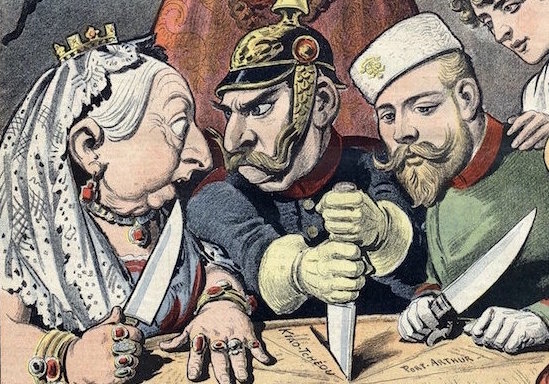
Congo ‘Free’ State was established around the Congo Basin and was to be used as a common access for ‘free trade and navigation’ by all European powers, although administratively it would belong to the Belgians headed by King Leopold II. What followed was legendary. Unconstrained greed backed by moral convictions of European and Christian superiority unleashed brutalities which cannot be matched even by Hitler’s Third Reich [6].
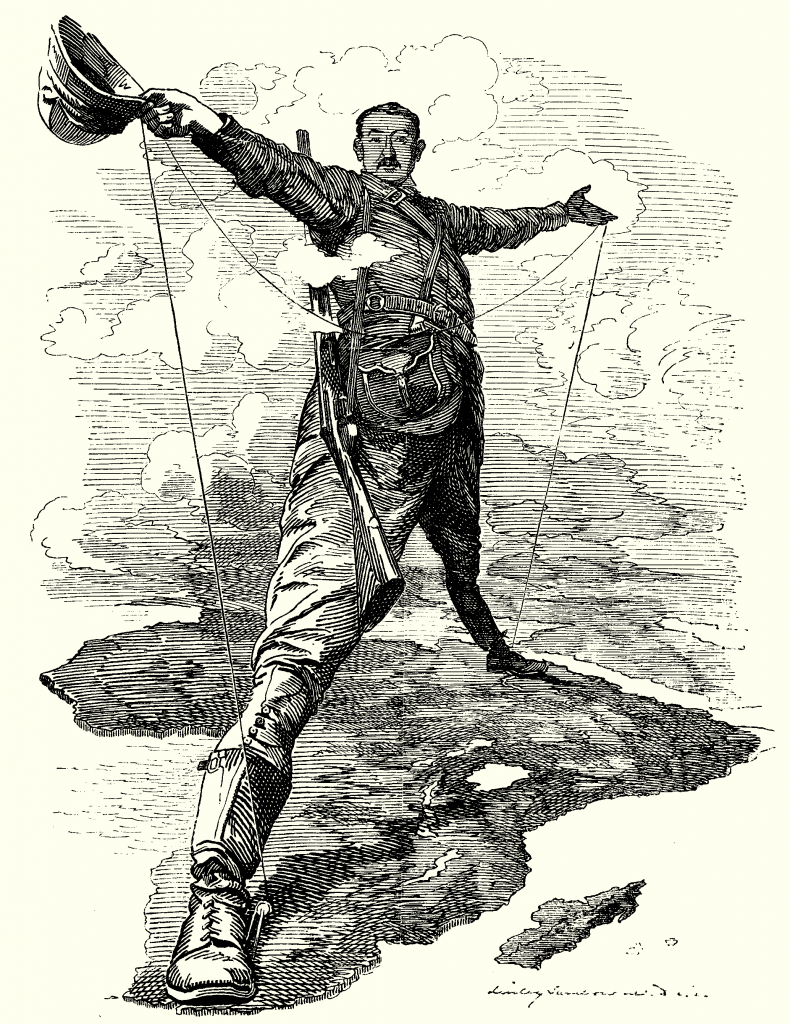
Leopold’s ‘rubber terror’ across his dominion in Congo, which was 75 times larger than modern Belgium, killed 8 million native inhabitants (50% of total population in Congo that time) through forced labor, mutilation and starvation between 1885 and 1908 (to give a ‘sense’ of proportion, the number of Jews killed during Hitler’s Third Reich was 5 to 6 million). Villagers who failed to provide rubber to European concession firms were punished by officers who were ordered ‘to cut off the heads of the men and hang them on the village palisades … and to hang the women and the children on the palisade[7] in the form of a cross’[8]. Rubber quotas were in part paid off in chopped hands. A soldier said to a Danish missionary, ‘Don’t take this to heart so much. They kill us if we don’t bring the rubber. The Commissioner has promised us if we have plenty of hands he will shorten our service’[9]. The Belgian soldiers forced young men to rape and kill their own mothers and sisters. Forbath in his book, writes, ‘the baskets of severed hands, set down at the feet of the European post commanders, became the symbol of the Congo Free State…’[10]
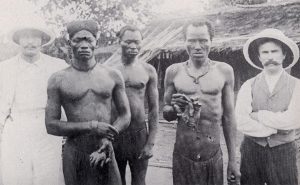
All this took place under the nose of other European rulers who conveniently turned their face away as long as they could, and as long their indirect economic interests were served. These opening lines from the ‘great’ Rudyard Kipling’s 1899 poem The Whit
e Man’s Burden probably sums up the average white world’s attitude:
Send forth the best ye breed–
Go bind your sons to exile
To serve your captives’ need;
To wait in heavy harness,
On fluttered folk and wild–
Your new-caught, sullen peoples,
Half-devil and half-child….
The Principle of Effective Occupation was so efficient that within 30 years of the conference, and followed by unrestrained conquests such as Leopold’s, European control over Africa increased from a lowly 10% to a sweeping 90% of the continent. This scramble opened up global markets for European products as never before. Raw materials such as copper, cotton, rubber, diamonds, tea and cocoa were now abundantly available for European producers and traders. Coupled with cheap African labor, often forced, European consumption of these were now unbridled. Moreover, the chief financers minted fortunes. Among them, the most famous name is, arguably, that of Cecil Rhodes. He was unmatched in his influence over the politics of Central and South Africa and was matched in ruthlessness only by King Leopold. He not only carved Rhodesia (present day Zimbabwe) for himself from his diamond business De Beers Mining Company in 1880 but commanded a near total control to the south of Congo Basin, financing despots, and funding wars. His clear conviction helped in more than one way as he believed that “it is our duty to seize every opportunity of acquiring more territory… more territory means more of the Anglo-Saxon race more of the best the most human, most honourable race the world possesses.”
The Legacy of Hypocrisy
Thanks to the way history is taught and controlled by Eurocentric text books, Rhodes is no longer known as the devilish architect of apartheid. Rather, he is now famous for a damned scholarship at Oxford that peddles his legacy by training in ‘elite capture’. The scholarship[11] was set over through the will of Rhodes, who bequeathed his six million pounds in 1902 from the exploits of the blood of black ‘half-devil, half child’ Africans. The purpose of the endowment was to promote civic-minded leadership among young colonists for “the furtherance of the British Empire, for the bringing of the whole uncivilized world under British rule, for the recovery of the United States, for the making, the Anglo-Saxon race but one Empire”[12]. Probably he knew that one day the war of colonial conquest would shift and the Principle of Effective Occupation will be applied over minds.
Scramble for ‘Union’
Yet, this extraordinary European cooperation did not last long as the First World War set in[13]. Liberty fed on a corpse of compassion comes at its own cost and meets its end. What started as a cooperative union of common interests, eventually gave rise to common claims. Common interests, when based on ‘self-interest seeking with guile’[14], are not really common, they are simply convenient. And when convenience comes in the way of absolute hegemony, conflicting ideals of supremacy rein. This is completely perverse to Dharmic principles where violence is carried out only for the essentials of order and welfare of the unprotected. As Krishna spoke to Arjuna in the battlefield of Kurukshetra: ahankaram balam darpam, kamam krodham ca samsritah, mam atma-para-dehesu, pradvisanto ‘bhyasuyakah (Bhagavad Gita, 16.18) – those bewildered by false ego, strength, pride, lust and anger, become violent and decry Dharmic principles.
The barbaric display for wealth and power were sold to the masses under the pretext of the superfluous virtues of ‘civilizing missions’ – to show ‘light’ to the Dark Continent! Yet, in reality, these were founded on ahankara (false ego), balam (strength), darpam (pride), kāmam (lust) and krodham (anger). Unless these principles could be reversed, resulting exploitation and conflict could hardly be prevented. So after World War I another attempt for a union was charted in the form of the Treaty of Versailles in 1919. This was, however, no charter of a union based on principles of love and compassion, and ended in the even more devastating Second World War. When Germans started doing unto the white world, what the white world did in the dark colonies, Europeans were shaken to the core. Hence a tighter-than-ever institutional weaving took place in the form of a common European economic community and eventually the European Union. All doors to self-destruction as exemplified by German dominance were blocked.
But hardly was there a reversal of the foundations. It was still based on self-interests of economic unity for continued dominance and protection from self-destruction. Circa 2010- and the pangs of this convenient union started to be felt. Present Europe has a weakened economic structure, reflected in poor growth rates, high unemployment and the Greek crisis. It is in the midst of a geo-political mess with an inflow of migrants from middle-eastern countries to the boundaries of Europe and internal migration from Balkan and Eastern regions upwards to the West and the North. The social fabric has been depleting with low fertility rates leading to demographic decline, alarming rates of single mothers living on welfare, broken families and increasing proportions of children growing on drugs and indiscriminate sexual activity leading to emotional disorders. The root of this can be traced to the disregard for family system for the sake of economic expansion which has been a hallmark of modern industrial growth and the great enabler of progress. This disregard was at its best display during the Scramble for Africa when straight lines drawn to carve European colonies cut through villages, tribes and families and permanently scarred a continent gifting it tensions and conflicts which have continued till today. Pre-colonial Africans identified themselves as tribes that valued relationships both within and among themselves. When there was a dry season, the Cushites from (present day) Somalia would move to fellow Cushites in (present day) Kenya or (present day) Ethiopia. The Maasais from (present day) Kenya would not hesitate to cohabitate with the Maasais from (present day) Tanzania. Today, their access to each other is governed by the Principle of Effective Occupation and not Effective Kinship.
No wonder then that at the first threats from immigration and fear of their own countries being occupied by the non-white world, Europeans have panicked. While the British have taken a leadership in paranoia (true to their erstwhile tradition in colonial savagery), there are deep-seated apprehensions even in the rest of Europe. What is missing is recognition of mam atma-para-dehesu (as in the quote from Bhagavad Gita 16.18 above) – that divinity rests in others, that everyone is connected to each other, that a harm to others is a harm to oneself, that it takes a family to grow and a village to make merry, that wealth lies in service and not exploitation. Unless this is ingrained in the conscious of a new era no artificial principle of common union can sustain. Those who scramble for what is not rightfully theirs, will one day by the force of their own nature, eventually scramble for their own.
[1] In the 16th century, Francisco de Vitoria, a Roman Catholic philosopher and jurist, propounded the guardian-ward relationship theory (now known as the fiduciary principle) which provided the moral justifications for imperial rule starting with the Spanish conquests of the Americas. Vitoria’s theory was rampantly used by later colonialists such as King James I of England who thought this principle of civilizing guardianship could be used for the purpose of ‘propagating the Christian religion’ and to ‘bring the Infidels and Savages, living in those Parts, to human Civility, and to a settled and quiet Government’ (p.408, Philosophical Foundations of Fiduciary Law, A.S. Gold and P.B. Miller, Oxford University Press, 2014). Vitoria is, incidentally, known as one of the fathers of international law and the founder of global political philosophy’.
[2] “The Scramble for Africa: White Man’s Conquest of the Dark Continent From 1876 to 1912”, Avon Books New York, 1991
[3] “Through the Dark Continent: The Sources of the Nile Around the Great Lakes of Equatorial Africa and Down the Livingstone River to the Atlantic Ocean”, Henry Morton Stanley, 1890
[4] Brexit indicates that the war over ‘spheres of influence’ has not ended
[5] It made only a minor oversight though – it did not include the interests of the indigenous inhabitants. But as it seems, it was hardly a concern in a ‘civilizing mission’.
[6] Belgium’s Heart of Darkness, Time Stanley, History Today 62.10, 2012
[7] Fence made from wooden stakes
[8] Bourne, Henry Richard Fox (1903). Civilisation in Congoland: A Story of International Wrong-doing. London: P. S. King & Son. p. 253.
[9] “The River Congo”, Peter Forbath, Harper & Row Publishers, 1977
[10] Readers interested in more detailed first had accounts of Leopold’s ghastly acts can refer to Joseph Conrad’s 1899 novel Heart of Darkness
[11] I would rather call it Blood Scholarship in the tradition of Blood Diamond and Blood Money.
[12] Cecil Rhodes & William Thomas Stead (1902). The last will and testament of Cecil John Rhodes: with elucidatory notes to which are added some chapters describing the political and religious ideas of the testator. “Review of Reviews” Office.
[13] Even though the Berlin Conference set rules of colonial occupancy it failed to reduce hostilities among European powers. Events such as 1898 Fashoda incidence, 1905 Moroccan crisis (to name a few) over control on Congo and Nile, were precursors to World War I
[14] I borrow this term from one of my economics gurus, Oliver Williamson – who uses it to define ‘opportunism’ in Contract Theory. And while this definition may be out of context, it does precisely sum up the core values which bound the European powers of the time.


